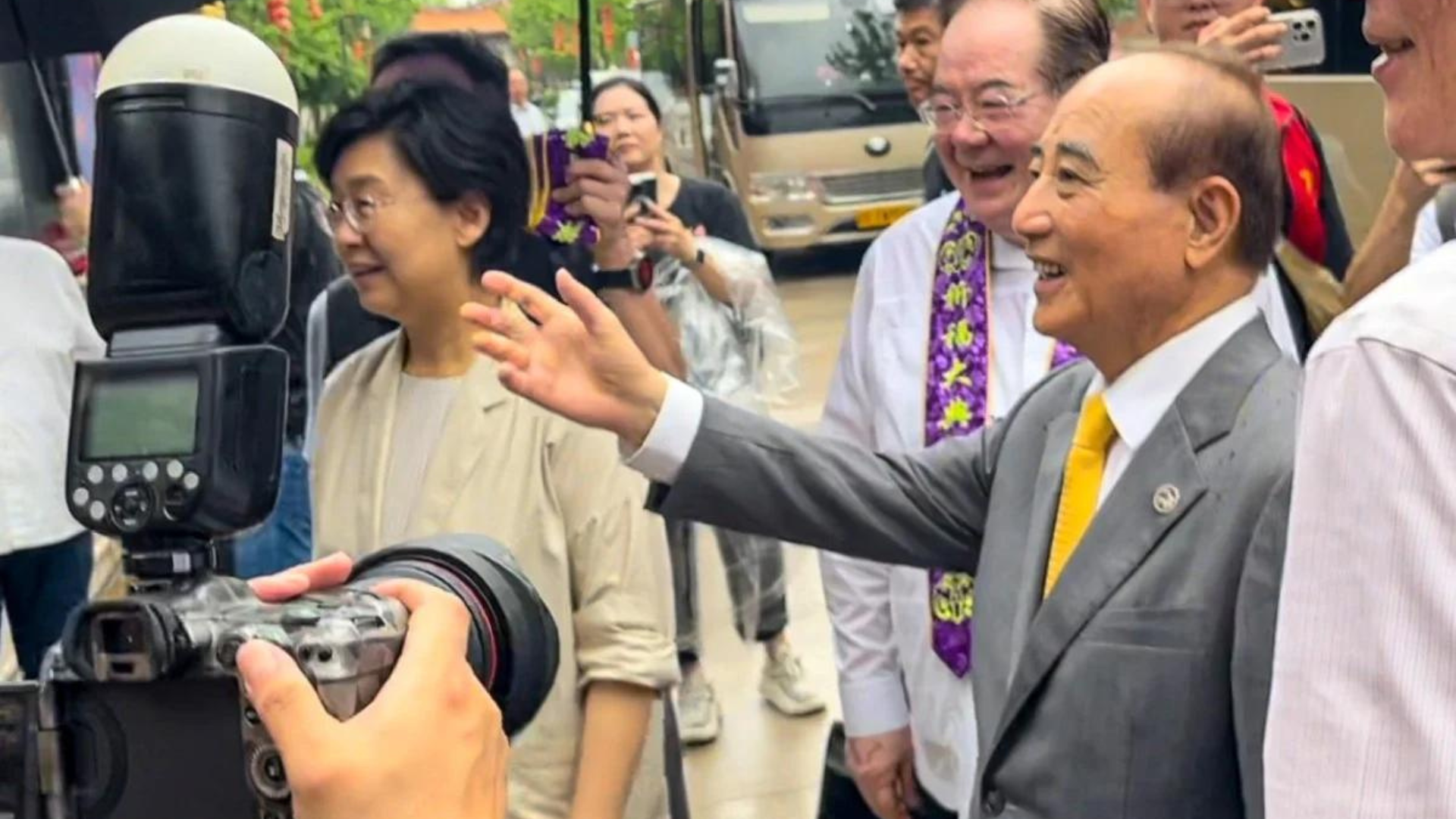Former Taiwanese top legislator Wang Jin-pyng, belonging to the pro-China party Kuomintang (KMT), is on a week-long “religious pilgrimage” to mainland China. The visit comes as Beijing increases pressure on Taiwan’s new leader. Wang’s office has emphasized that the trip is solely for “personal religious purposes” and not politically motivated.
Temple Visit and Official Meetings
Wang was invited to attend the opening of a new theatre stage at the Huiju Tianhou Temple in Kunshan, Jiangsu province. The temple is dedicated to Mazu, the Chinese sea goddess worshipped by coastal communities across the Taiwan Strait. On Sunday morning, Wang was joined by Lian Yueqin, Jiangsu’s Taiwan affairs chief.
According to the Taiwanese daily China Times, Wang might also pay a courtesy visit to the Taiwan Affairs Office, the mainland body overseeing cross-strait matters, and meet its director, Song Tao. The report, citing unnamed sources, suggested that if the meeting occurred, it would likely avoid “in-depth issues.”
Historical Context
Wang’s last mainland trip was in May 2019, during which he met with Song Tao’s predecessor, Liu Jieyi, after visiting his ancestral village in Fujian province. At that time, Wang declared his intention to become the KMT’s candidate for the 2020 presidential election, a bid he later withdrew.
During his meeting with Liu, Wang stated that Taiwanese independence was a “false proposition” and endorsed the “1992 consensus,” an unofficial agreement that there is only one China but with differing interpretations. This consensus is often cited as the foundation for semi-official cross-strait exchanges starting in the early 1990s and is a major precondition set by Beijing for dialogue.
Ongoing Cross-Strait Relations
Beijing views Taiwan as part of China and has vowed to reunite it, by force if necessary. Most countries, including the United States, do not recognize Taiwan as an independent state. Wang’s visit highlights the ongoing complexities and sensitivities in cross-strait relations.







